
Exciting new series on “Voice, Body and Movement for Lawyers – How to connect with the jury and find Justice Through Dramatic Technique!”
Click here to find out more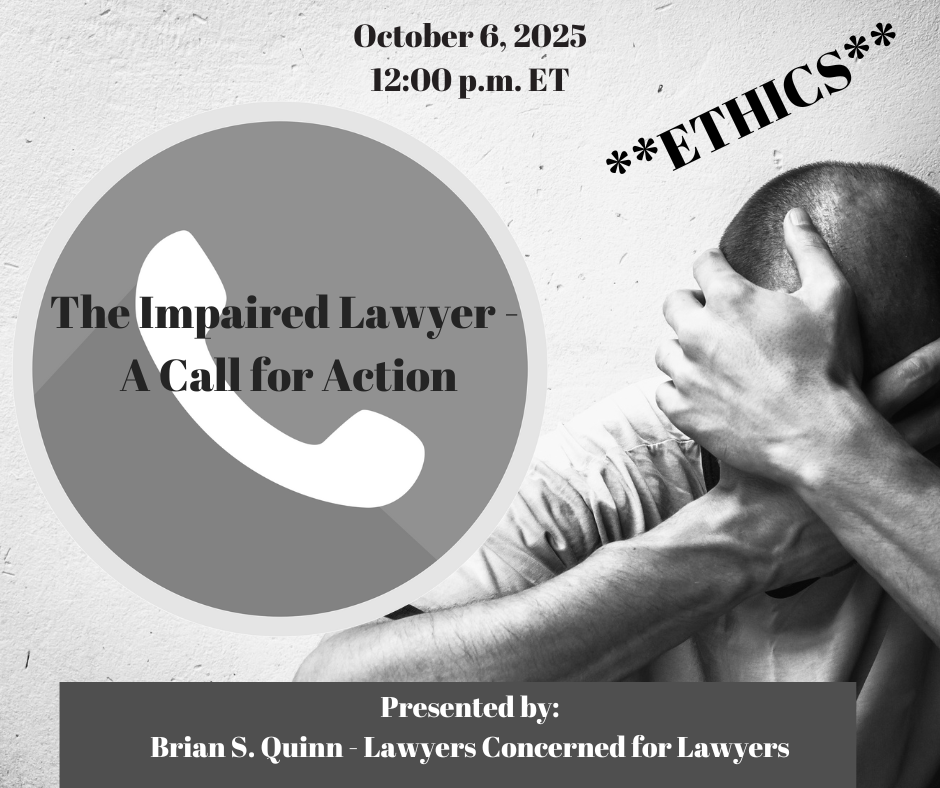
Recent studies have shown that there has been a dramatic increase in impairment due to alcoholism, addiction and mental health disorders among members of the legal profession. The statistics are compelling and clearly indicate that 1 out of 3 attorneys will likely have a need for substance use or mental health services at some point in their careers. When added to the impact on the profession of the COVID-19 crisis and the resultant uncertainty, we have opened a Pandora’s box of unintended consequences.
Rule 8.3(c) of the Rules of Professional Conduct will be discussed as it relates to the duty to report attorney misconduct.
In addition to a breakdown of the results of the recent ABA and Law.Com studies, Mr. Quinn will discuss:

This session provides an in-depth examination of the fiduciary duties that both minority and majorit...
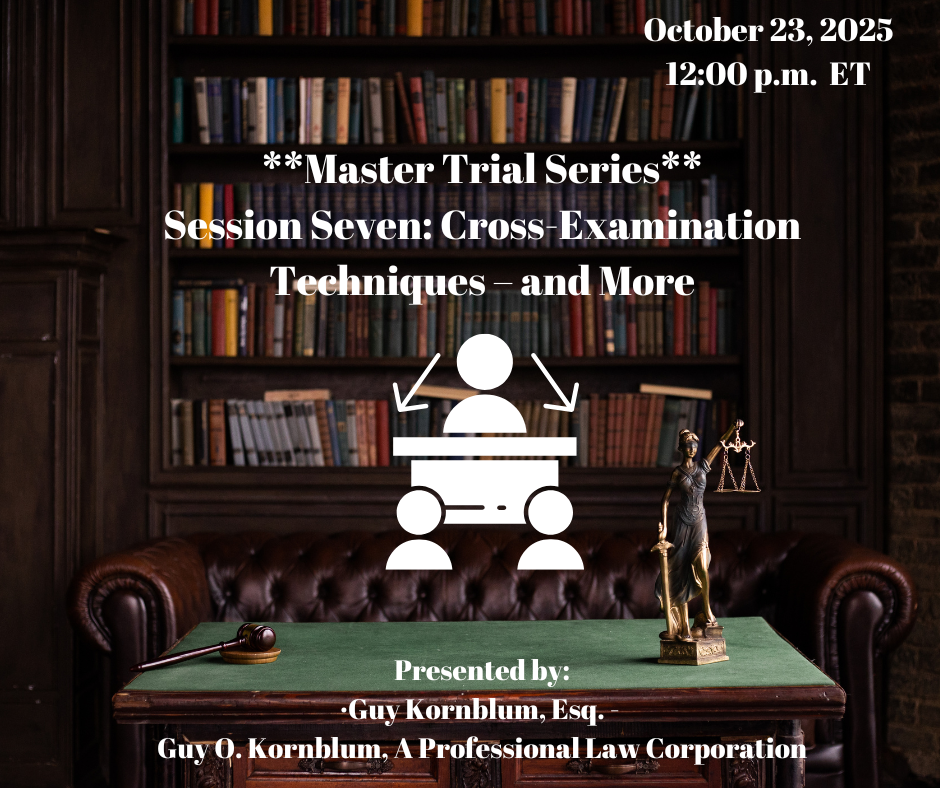
Session 7 of 10 - Mr. Kornblum, a highly experienced trial and litigation lawyer for over 50 years, ...

Designed for beginning estate planning attorneys, this comprehensive course provides a practical fou...
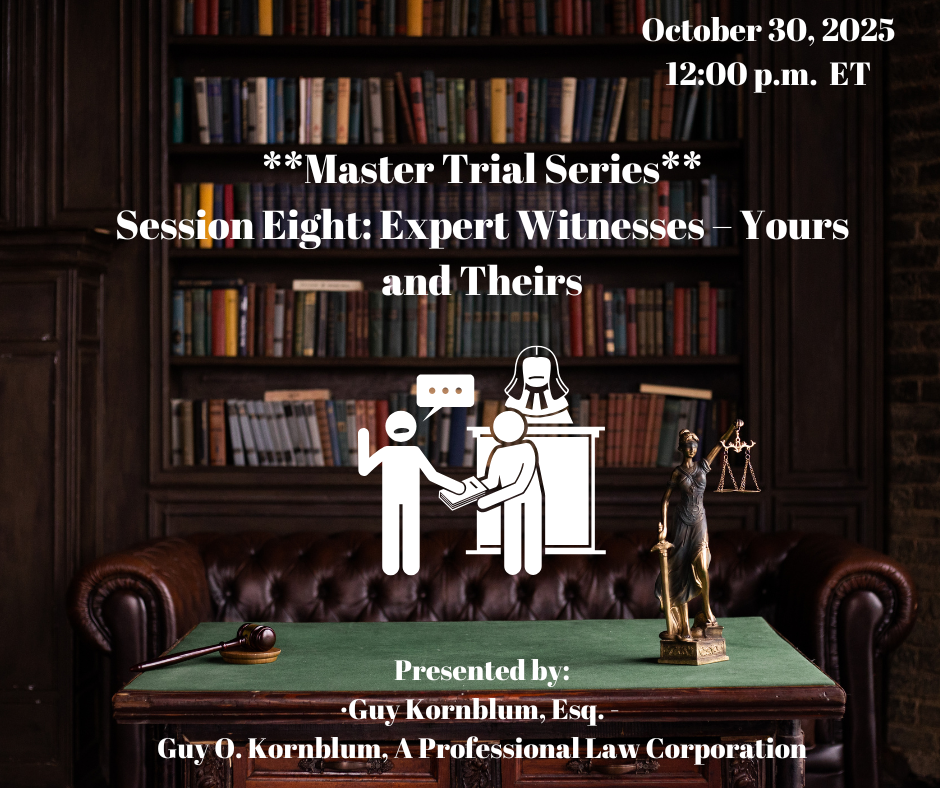
Session 8 of 10 - Mr. Kornblum, a highly experienced trial and litigation lawyer for over 50 years, ...
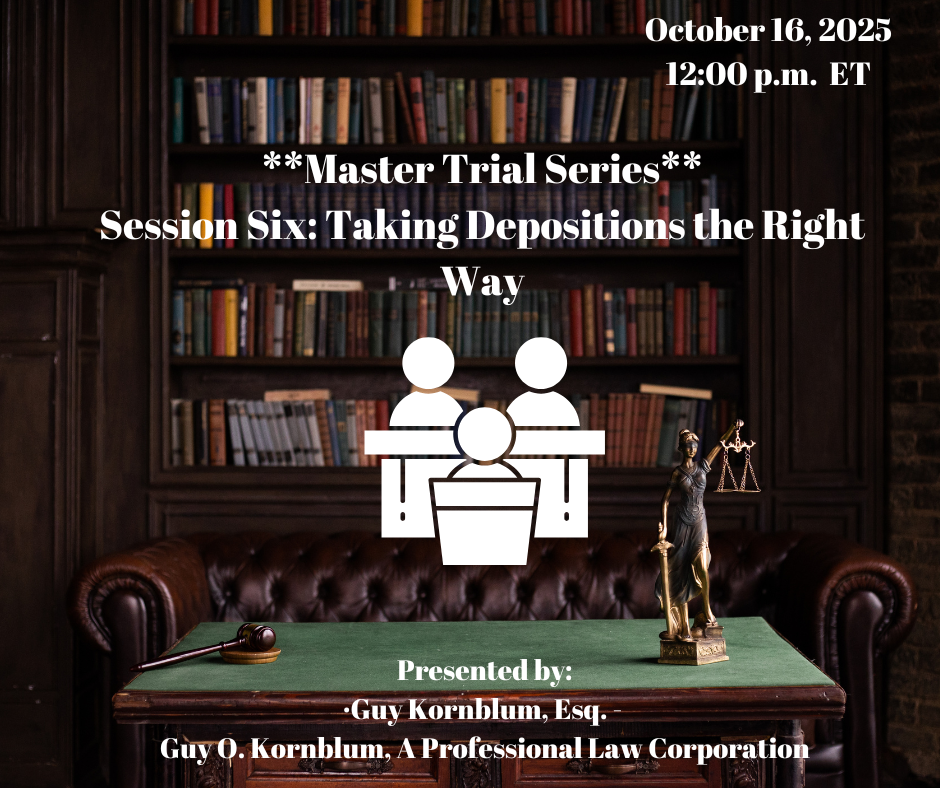
Session 6 of 10 - Mr. Kornblum, a highly experienced trial and litigation lawyer for over 50 years, ...

This 1-hour program provides a comprehensive exploration of the ethical and compliance challenges in...
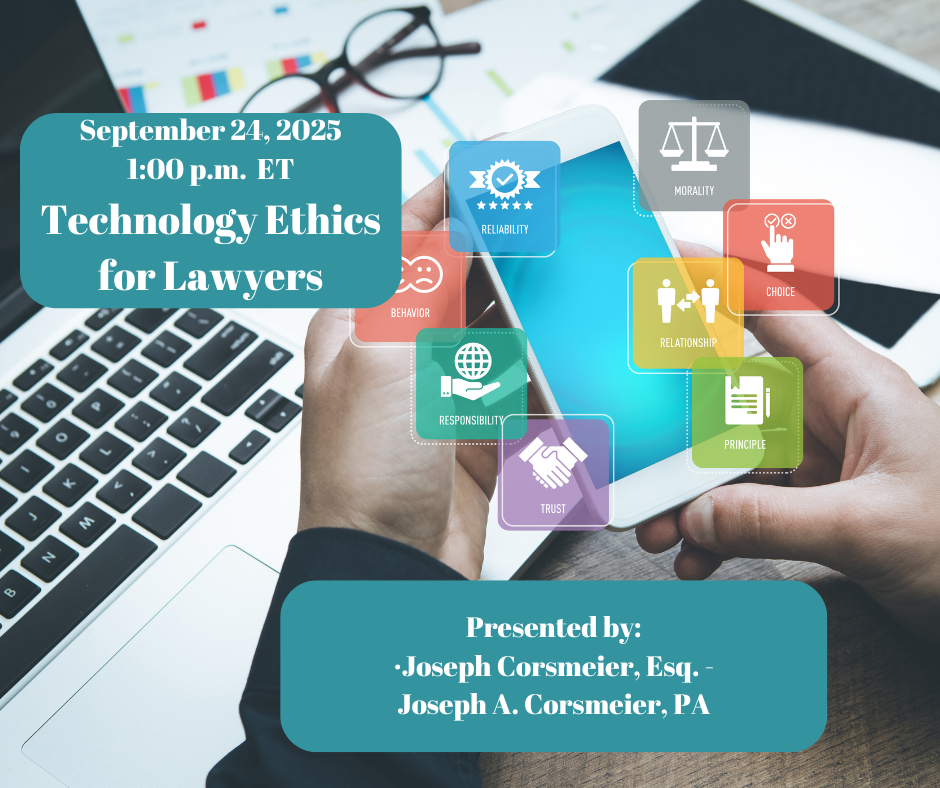
There are many hidden dangers in frequently used digital tools and media platforms, including social...
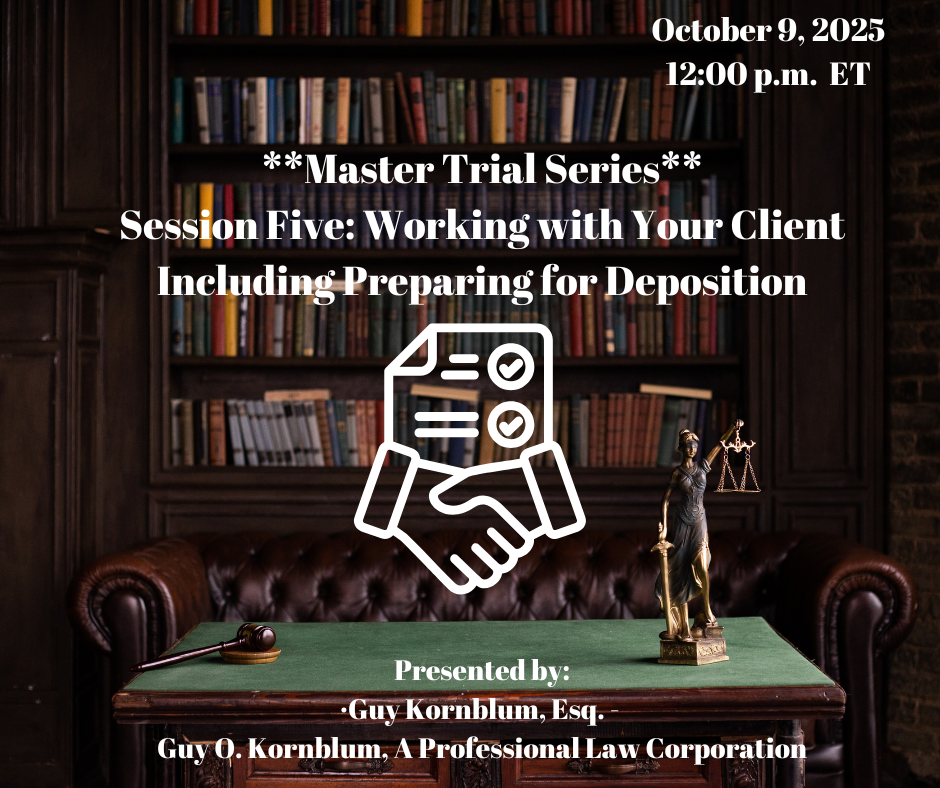
Session 5 of 10 - Mr. Kornblum, a highly experienced trial and litigation lawyer for over 50 years, ...
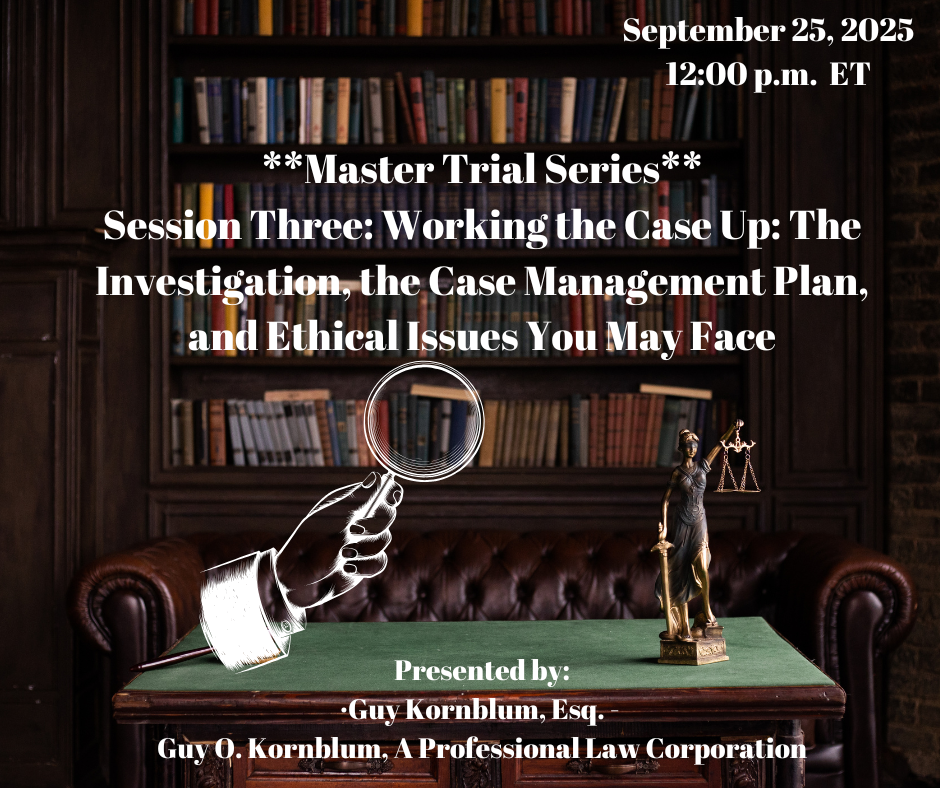
Session 3 of 10 - Mr. Kornblum, a highly experienced trial and litigation lawyer for over 50 years, ...

This course will cover fundamental aspects of state telehealth laws and regulations. Attendees will ...